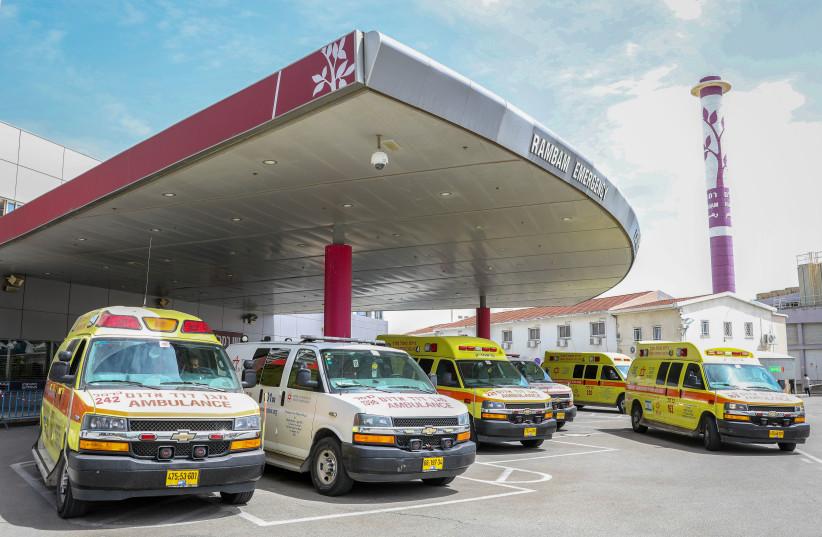For the first time in Israel, an innovative procedure has been performed that cardiologists from Haifa’s Rambam Health Care Campus claim prevents the need for blood thinners and reduces the risk of stroke for those suffering from atrial fibrillation (AFib).
The catheterization procedure used an innovative method without anesthesia to treat the area where blood clots form in the heart.
AFib occurs when abnormal electrical impulses suddenly start firing in the atria; the atrium (“entry hall” in Latin, or auricle) is one of two upper chambers in the heart that receive blood from the circulatory system. These impulses override the heart’s natural pacemaker, which can no longer control the rhythm of the heart, triggering an irregular pulse rate.
The condition is not usually life-threatening in people who are otherwise healthy, but it must be diagnosed properly and may be dangerous for the elderly or anyone with diabetes, high blood pressure or other diseases involving the heart.
Besides a rapid and irregular heartbeat, other symptoms can include weakness, dizziness, shortness of breath and anxiety, faintness or confusion and fatigue when exercising. AFib causes about one in seven strokes, which tend to be more severe than strokes with other underlying causes.

“This is really good news,” said Prof. Mahmoud Saliman, head of the electrophysiology, arrhythmia and pacemaker unit in Rambam’s cardiology department.
“Most blood clots form around the left auricle,” he said. “It is a kind of bag whose purpose is to regulate the pressure created while the heart contracts. Patients who suffer from atrial fibrillation are at a higher risk of blood clots, which can endanger them – and for this reason, most of them take blood thinners. However, some patients cannot receive blood thinners, so there is a need for a surgical procedure to close the auricle in order to reduce the risk of a stroke.
“Until now, a catheterization through the vein of the leg has been required, and at the same time the entry of an imaging tube through the esophagus and under full anesthesia, many times while injuring the esophagus.”
Why is this innovation so important?
About 90,000 patients in Israel suffer from AFib, and most of them have to take blood thinners.
“For the first time in Israel, we were able to insert an ultrasound device through the vein, together with the catheterization procedure,” Saliman said. “This is an innovative method that allows the procedure to be performed with maximum comfort for the patient, without anesthesia and without injury to the esophagus, as may occur in the existing procedure. The significant advantages of the innovative method are full vigilance of the patient, quick recovery and preventing the need for blood thinners for life.”
Yehudit Shtoff, who underwent the innovative procedure, said she began to suffer from bleeding a year ago, which at first did not seem serious, until she fainted and the bleeding increased. She was rushed to Rambam’s intensive-care unit.
For several days they tried to find and understand the source of the bleeding,” she recalled. “Finally, I underwent an emergency and complex operation, and during the hospitalization, it was also discovered that I suffer from atrial fibrillation. Because of the bleeding, I couldn’t take blood thinners, so Prof. Saliman suggested that I undergo this procedure, which is like a catheterization without anesthesia, and I agreed. Everything went smoothly, and I recovered quickly.”
The candidates for the procedure are first and foremost AFib patients who suffer from other underlying diseases that prevent them from taking blood thinners, those who do not respond to blood thinners, who suffer from bleeding or who have a high risk when using anesthesia, Saliman said.
“We were the first to perform the surgery without anesthesia and without the need to insert an imaging tube into the esophagus and treat the patients from taking blood thinners,” he said. “And I believe that after us, the surgical method will be adopted by other hospitals in Israel in a way that will greatly improve the quality of life of the patients.”
